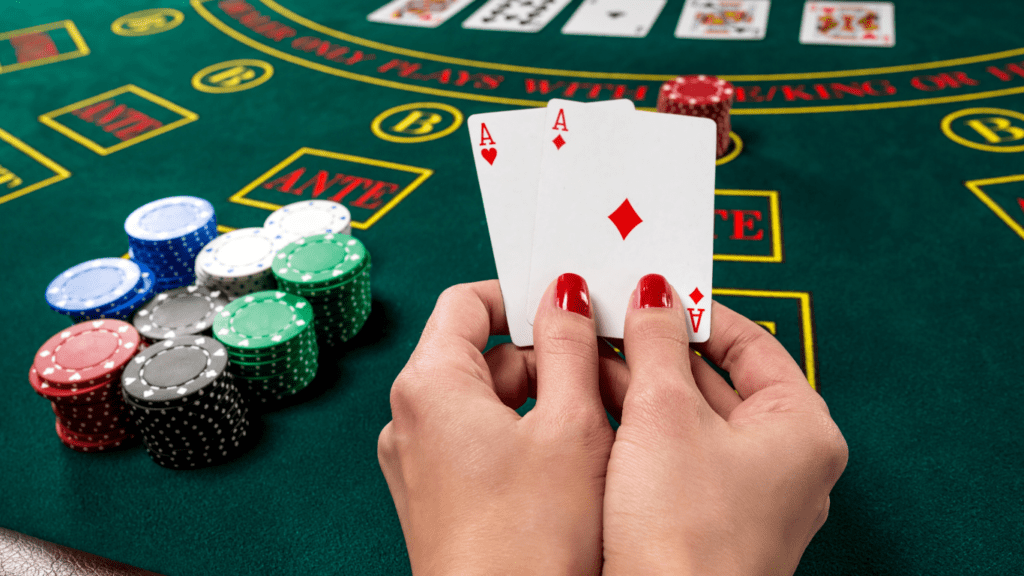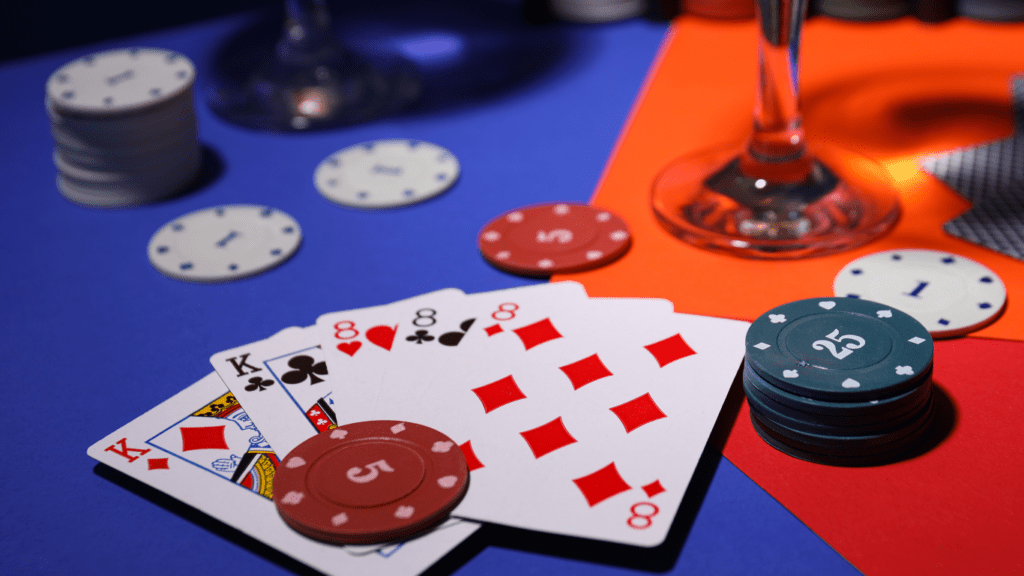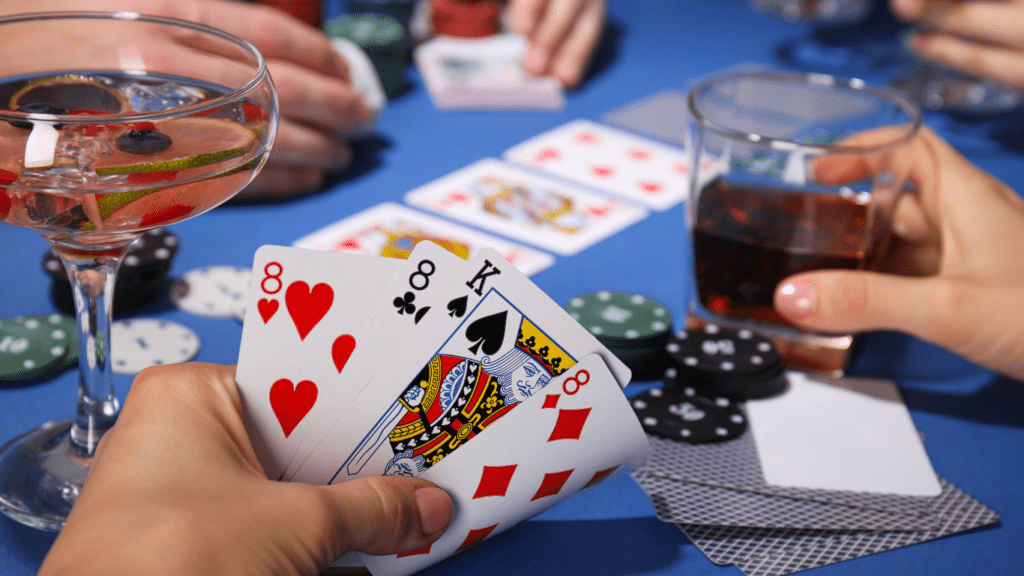Poker isn’t just a game—it’s a high-stakes dance between strategy, resilience, and passion. I’ve always been fascinated by how top players thrive under immense pressure, making split-second decisions that can change everything. It’s not just about the cards; it’s about mastering the mind and staying composed when the stakes couldn’t be higher.
Overview Of “Poker Is Life: How Top Players Balance Pressure, Performance, And Passion”
Top poker players approach the game as an intertwined mix of:
- skill
- emotional control
- dedication
They manage high-pressure moments by relying on well-honed strategies and psychological resilience. This approach enables them to make accurate, calculated decisions even when stakes are high.
Performance hinges on preparation and adaptability. Players study game theory, track opponents’ tendencies, and refine their techniques during practice sessions. In competitive play, they adjust strategies based on shifting game dynamics, staying one step ahead.
Passion fuels persistence. Whether competing in world-class tournaments or grinding daily games, top players maintain their drive by focusing on long-term growth. This passion creates a mindset that views every hand as a learning opportunity, deepening their connection to the game.
Exploring The Theme Of Pressure In Poker
Pressure in poker is an unavoidable aspect that defines both the game and its players. Success demands the ability to stay composed under intense circumstances where decisions carry significant consequences.
Managing Stress At The Poker Table
Managing stress at the table requires deliberate focus and preparation. I build psychological strategies to mitigate tension, such as controlled breathing and active concentration. These techniques help me stay grounded, especially during high-stakes moments. Recognizing patterns in opponents’ behaviors or betting helps shift attention from anxiety to actionable insights. I also avoid emotional reactivity by staying focused on long-term outcomes rather than isolated hands.
Top players frequently practice mindfulness or similar pre-game routines to enter a state of mental clarity. By fostering self-awareness, I’m able to recognize when stress builds and adjust my approach before it affects my decision-making. This balance between mental control and strategic execution ensures I don’t let pressure compromise my performance.
The Role Of Mental Resilience In Poker Success
- Mental resilience forms the core of lasting poker success.
- I rely on my ability to recover quickly from losses and maintain confidence despite setbacks.
- Facing bad beats or difficult decisions is inevitable, and I strengthen my mindset to keep emotions from dictating my actions.
- Developing resilience involves consistent self-discipline, analyzing mistakes without judgment, and continually refining my gameplay.
- Professional poker players often simulate stressful scenarios during practice to build mental endurance.
- I use this approach to prepare for the demands of live tournaments and adapt quickly to unexpected challenges.
- Mental toughness enables me to make rational decisions, blocking distractions and leveraging each situation to my advantage.
- Resilient players view pressure not as a threat but as an opportunity to excel under challenging conditions.
Performance Strategies Of Top Poker Players

Top poker players rely on a combination of strategic preparation and mental discipline to maintain peak performance. They approach the game with focus, adaptability, and a commitment to continuous improvement.
Skill Development And Practice
I prioritize consistent practice to sharpen my poker skills. Analyzing hand histories, studying advanced game theory, and reviewing professional matches are key methods I use to refine my understanding of the game. Practice sessions simulate real-game scenarios, helping me identify patterns and tendencies in opponents’ behaviors. This preparation creates a competitive edge and builds confidence for high-stakes situations.
I also rely on tools like equity calculators and software solvers to evaluate complex hands and enhance my decision-making. Attending workshops and collaborating with other players expands my knowledge base and introduces me to new strategies. Combining technical skill-building with practical application ensures my approach stays effective and up-to-date.
Decision-Making Under Pressure
Accurate decision-making defines success during critical poker moments. To perform well under pressure, I train myself to focus on logical reasoning rather than emotional reactions. Using techniques like deep breathing and mindfulness improves my concentration, keeping me composed when games become intense. Remaining detached from the outcome helps me assess risks objectively and choose strategically sound actions.
I analyze variables like pot odds, stack sizes, table position, and opponents’ tendencies before committing to any move. By systematically evaluating scenarios, I reduce mistakes and increase consistency. Simulated high-stress drills prepare me for pressure-filled environments, ensuring decisions remain calculated even when the stakes are high.
Passion As A Driving Force In Poker
Passion lies at the core of every great poker player’s journey. It sustains long-term commitment, drives improvement, and transforms obstacles into opportunities for growth.
Maintaining Motivation Through Ups And Downs
I find that poker’s inherent variability can test even the most resilient players. Winning streaks may build confidence, but losses often challenge motivation. Passion creates a steady foundation during these fluctuations. By focusing on the learning process, I treat losses as insights into my areas for improvement. Reviewing hand histories and analyzing mistakes becomes a constructive habit rather than a discouraging task.
Connecting with other players who share enthusiasm for the game also helps me maintain motivation. Engaging in strategy discussions, studying professional matches, or joining online communities fosters a supportive network that encourages persistence. When setbacks occur, this shared passion reminds me of my goals and reinforces my determination.
The Love Of The Game As A Fuel For Success
For me, success in poker goes beyond monetary rewards. It stems from a deep love of the game itself. The strategic intricacies, psychological battles, and dynamic interactions with opponents create an environment that constantly challenges and excites me. This love drives me to study advanced strategies, refine techniques, and dedicate time to improvement.
Playing in various formats, from cash games to tournaments, highlights the rich diversity of the game and keeps the experience engaging. I view each match as a chance to learn and evolve, whether I’m analyzing complex decisions in high-stakes games or experimenting with creative plays during lower-stakes sessions. This enduring love ensures that my pursuit of mastery remains both fulfilling and enjoyable.
Lessons From The Book For Players And Beyond
Poker provides lessons that extend beyond the table, shaping decision-making, resilience, and emotional intelligence. These insights hold value not only for players but also for professionals, entrepreneurs, and individuals navigating complex environments.
1. Strategic Decision-Making
I learned that poker sharpens decision-making under uncertainty. Top players use logic and analysis, combining data with intuition to assess risks and rewards. This approach applies to life scenarios like career choices, investments, and negotiations, where clear strategies lead to better results.
2. Emotional Control
Managing emotions effectively is crucial in poker and everyday life. I noticed that skilled players practice emotional discipline, maintaining composure during losses or tough moments. This translates to handling personal or professional challenges without reactive decisions, keeping long-term goals in focus.
3. Resilience and Adaptability
I observed that players succeed by thriving under pressure, recovering quickly from setbacks, and adapting their strategies to dynamic situations. These qualities are vital in real-world contexts, helping individuals overcome obstacles and navigate unpredictable circumstances.
4. Continuous Improvement
Poker highlights the importance of lifelong learning. Players review past hands, study emerging strategies, and analyze mistakes to grow. Embracing this mindset can spur personal and professional growth, fostering innovation and self-improvement.
5. Risk Assessment
Understanding calculated risks is essential in poker and decision-making beyond the game. I found that successful players weigh potential gains against potential losses, ensuring deliberate choices. Applying this principle improves outcomes in tasks requiring careful evaluation.
6. Collaboration and Networking
Many players benefit from collaboration, sharing insights with peers and improving through feedback. I realized this directly translates to workplace environments and personal growth, where developing a strong network facilitates problem-solving and shared success.
7. Passion as a Driving Force
Sustained passion is core to excelling in poker and other fields. I noticed how players stay motivated by their love for the game’s challenges. Cultivating passion in any domain fosters perseverance, creativity, and long-term achievement.
These lessons reinforce that poker is not just a game but a blueprint for navigating life’s complexities, balancing ambition with grounded decision-making.






















































































































































































































































































































































































































































































































































































































































































































































































































































































































































































































































































